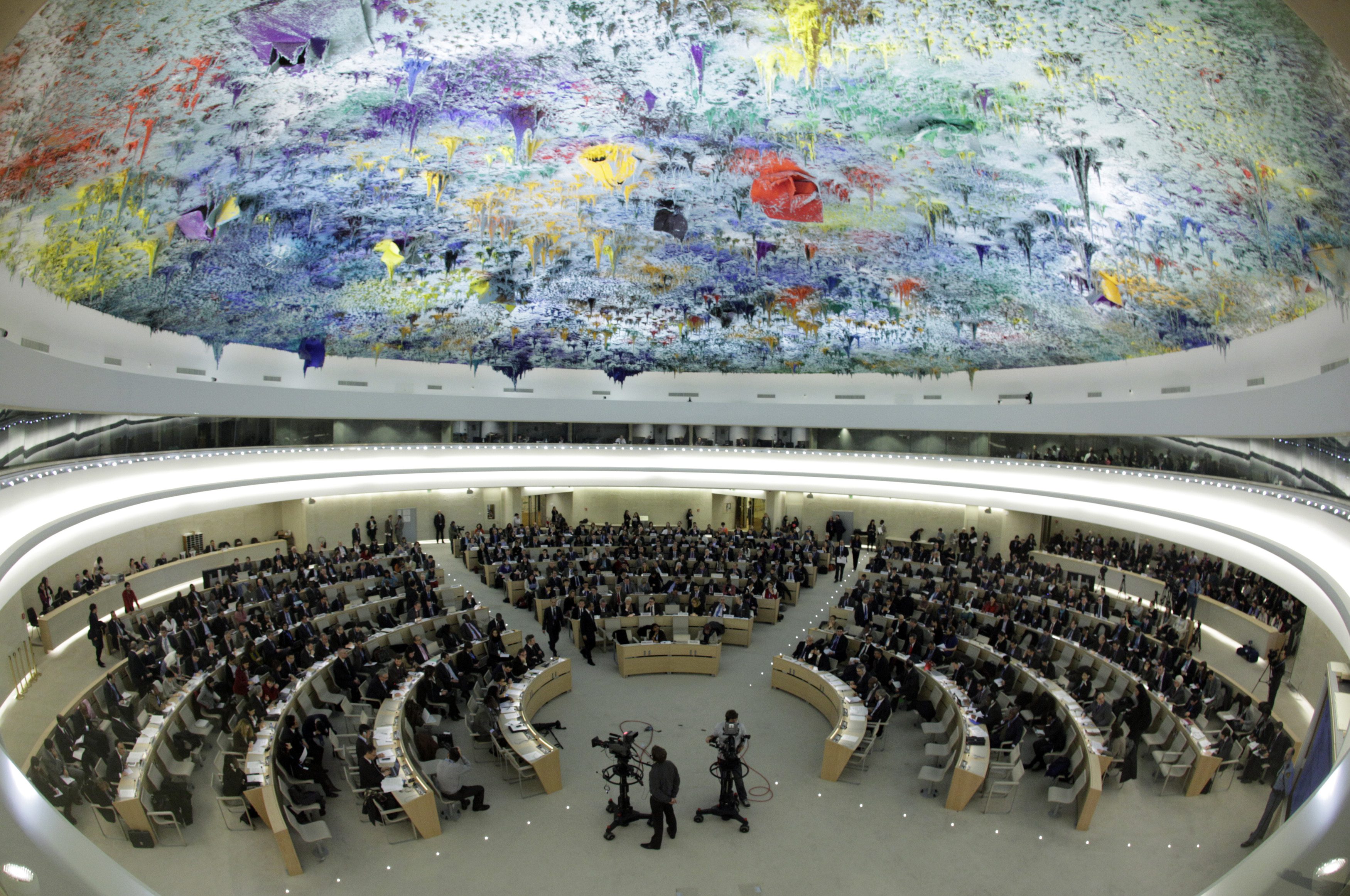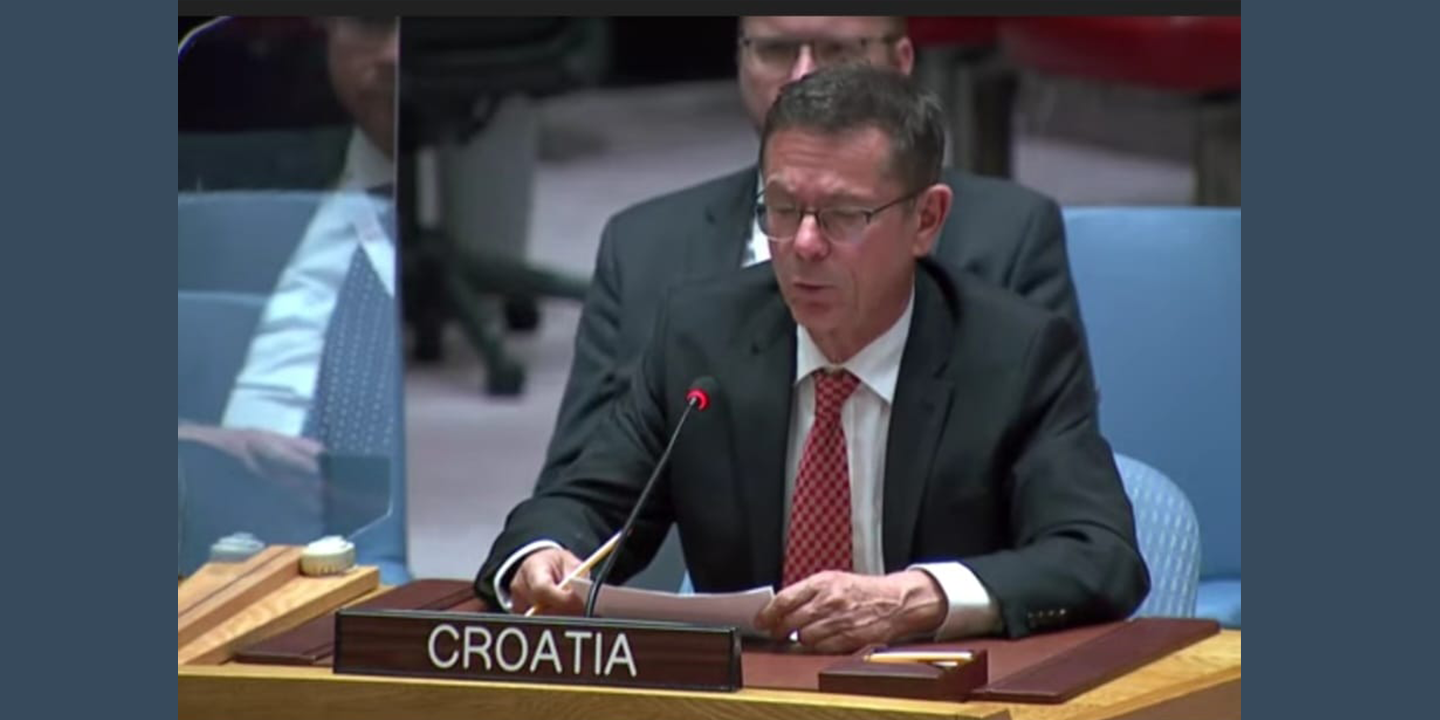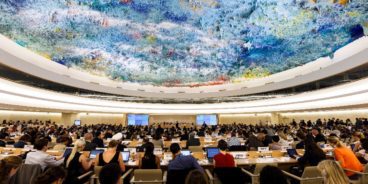

Statement delivered on behalf of members of the Group of Friends of R2P at the 2022 UN Security Council Open Debate on the Protection of Civilians in Armed Conflict
The following statement was delivered by H.E. Mr. Ivan Šimonović, Permanent Representative of Croatia and co-chair of the Group of Friends of the Responsibility to Protect, at the annual UN Security Council Open Debate on the Protection of Civilians in Armed Conflict.
I have the honor of delivering this statement on behalf of the Group of Friends of the Responsibility to Protect, consisting of 55 Member States and the European Union, and this year co-chaired by Botswana, Costa Rica and Croatia.
Today we bear witness to a continuing and pervasive erosion of respect for civilian lives and objects and an appalling disregard in some regions for the norms and laws that States have established to avert the impacts of armed conflict. As a result of such disregard, we are witnessing on a daily basis great levels of human suffering and high risk of mass atrocity crimes being perpetrated against civilian populations. All Member States have committed to the responsibility to protect their populations from genocide, war crimes, crimes against humanity and ethnic cleansing. Nevertheless, we note that more than 82 million people are currently displaced as a result of conflict, atrocities and persecution worldwide. The commission of systematic, egregious and widespread violations of International Humanitarian Law and International Human Rights Law, as applicable, in situations of armed conflict endangers the peace and security of the entire world.
Today’s debate on the protection of civilians and safe and unhindered humanitarian access shines a critical light on a defining challenge in many situations where atrocities have already occurred or where there is a high risk of atrocities being perpetrated. In conflict settings, active hostilities severely constrain and jeopardize humanitarian operations – hindering efforts to meet the basic needs of populations. Moreover, we have increasingly witnessed UN Member States and other parties to conflicts engage in the deliberate denial of humanitarian access, including through blocking passage and delivery of humanitarian assistance and services, or deliberately attacking humanitarian and medical workers and assets, in violation of International Humanitarian Law. This has an alarming impact on vulnerable civilian populations who face neglect, grave protection risks, potential starvation and significant public health crises and increased risk of sexual and gender-based violence, including conflict-related sexual violence.
It is within this context that the Group of Friends of R2P would like to stress the following points:
Firstly, the Group of Friends demands that all parties allow and facilitate, in accordance with relevant provisions of international law and consistent with humanitarian principles, the full, safe, immediate and unhindered access of humanitarian personnel, equipment and supplies and the timely delivery of humanitarian assistance to populations in need, including through lifting arbitrary bureaucratic impediments to humanitarian operations, allowing the flow of humanitarian aid and services into conflict areas, and protecting humanitarian and medical actors and civilians from attacks. When protecting humanitarian access to all people in need in conflict settings is a matter of international peace and security, the Security Council should continue to play a constructive role in encouraging the protection of humanitarian access.
Secondly, compliance with international law is fundamental to the protection of civilians and civilian objects. Many civilian deaths, as well as suffering and displacement, could be avoided if all parties to conflicts respected International Humanitarian Law and human rights. Some States have effective programs in their armed forces to comply with International Humanitarian Law. However, we are witnessing attacks directed against civilian infrastructure, including healthcare facilities and schools, some in violation of International Humanitarian Law. It is important to remember that indiscriminate attacks and attacks targeting medical facilities and civilian objects, including those indispensable to the survival of the civilian population, as well as on the civilian population, including those who are humanitarian workers, may amount to war crimes.
Thirdly, it is of the utmost importance that States that have not yet done so put in place appropriate legislative and institutional arrangements to comprehensively recognize and address violations of international humanitarian law and violations and abuses of human rights, and hold those who commit such violations and abuses accountable. Accountability not only helps provide justice and support for victims, but is also key to efforts to deter future violations and abuses and supports reconciliation processes and reestablishing peace. Appropriate legislative and institutional arrangements, as well as compliance with International Humanitarian Law and International Human Rights Law, would significantly contribute to the prevention and alleviation of human suffering.
Fourthly, support for the protection of civilians should be responsive to gender, age and other core demographic considerations. Security Council resolutions on Women, Peace and Security note that armed conflict and emergencies have a disproportionate impact on women and girls. Their needs and rights must be considered and addressed, alongside their full, equal, safe and meaningful participation. The Group urges the United Nations and other relevant actors to ensure that affected populations, including women and girls, are involved in the development, implementation and monitoring of civilian protection strategies and activities.
Madam President,
Far too many civilians are killed in both deliberate and indiscriminate attacks in today’s complex and protracted conflicts. The denial of humanitarian access exacerbates risks to civilians who struggle to meet their basic needs. The international community should make every effort to protect civilians and assist those impacted by conflict. The Members of the Security Council should continue to take timely and decisive action aimed at ending and preventing atrocities and not hinder credible efforts to this end.
We call on all Members of the Security Council to respond to and address the risk or commission of mass atrocities, noting in this context the initiatives on the use of veto in case of mass atrocities, including the French Mexican initiative and the Accountability, Coherence and Transparency Group code of conduct.
Finally, the surest way to protect civilians is by investing in the prevention of conflict and atrocity crimes through early warning, and in the peaceful settlements of disputes, based on the principles of justice, human rights and international law.
Thank you.
Related Content

